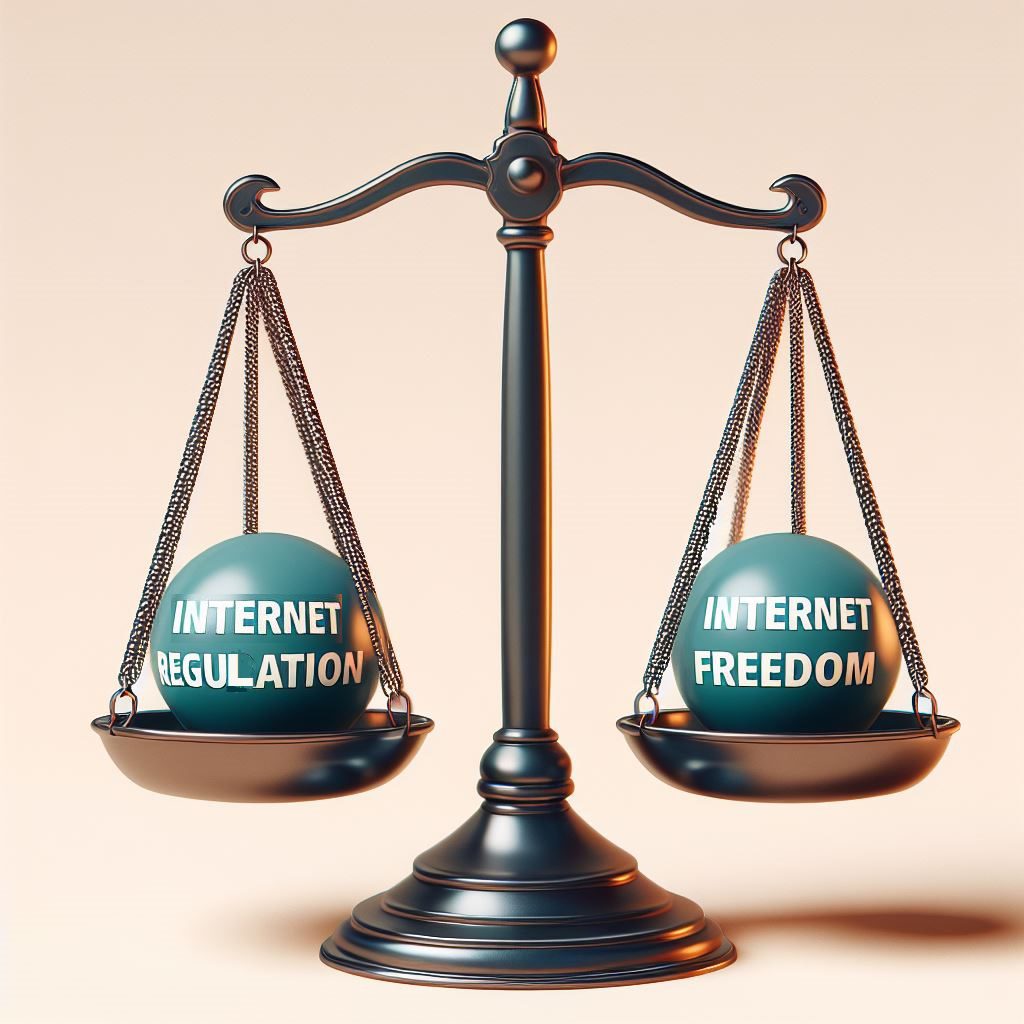Title II Regulation of the Internet Returns … Litigation Likely to Follow
Randy Sukow
|

Action on the most emotional communications regulation issue of the last 20 years went down as most expected. One side said that reinstating Title II telecommunications regulations with “net neutrality” rules makes “common sense.” The other side said it was the latest government “power grab.” In the end, the FCC voted in favor of reinstatement by a 3-2 party line vote during yesterday’s monthly agenda meeting.
But it is unclear when the internet world will feel the full effects of the 434-page “Declaratory Ruling, Order, Report and Order, and Order on Reconsideration.” The FCC’s action is almost certainly headed for a long court challenge.
The FCC, after years of unsuccessful attempts to adopt net neutrality rules despite its Title I, lightly regulated status, reclassified the internet as a telecommunications service in 2015. Changes based on the reclassification were on hold while opponents appealed the order. The U.S. Court of Appeals for the DC Circuit upheld the order in May 2016; however, six months later Donald Trump won the presidency. Title II-based internet proceedings were suspended and in 2017, the Commission reversed its 2015 order.
At yesterday’s meeting, the commissioners reprised the same arguments they used in October 2023 when they adopted another Title II Notice of Proposed Rulemaking. The Democratic majority said that the internet requires federal oversight for national security, public safety, cybersecurity and a long list of other reasons.
The Republican commissioners said there is no need to impose a wave of century-old telecommunications rules on a service that has thrived without them. They noted that network investment dropped during the two years Title II regulations were in place … a point that Chairwoman Jessica Rosenworcel disputed.
The Title II order, Rosenworcel said, is structurally similar to the 2015 order. Those provisions “made clear your broadband provider should not have the right to block websites, slow services, or censor online content. These policies were court tested and approved,” she said during the meeting.
Nevertheless, new rulemakings based on Title II likely will come after a final ruling on appeal, like the 2015-17 process. Much has changed since 2017 that could change the outcome this time.
“An appeal of the FCC’s order is almost certain and is likely to succeed under the major-questions doctrine given that the Supreme Court struck down similarly unauthorized use of agency authority in its 2022 ruling in West Virginia v. Environmental Protection Agency,” said Brian A. Rankin, adjunct fellow with the Competitive Enterprise institute in a Wall Street Journal opinion piece. .
Congress has never passed a law declaring the internet to be a telecommunications service. The major-questions doctrine limits regulatory agencies’ authority to set rules of major economic and political importance without clear authority from Congress. The effects of West Virginia v. EPA tend to strengthen the major-questions and weaken the Chevron doctrine, which has traditionally given agencies more deference.
The D.C. Circuit’s 2017 decision on Title II relied heavily on Chevron. “Chevron not only creates an environment in which agencies push beyond the bounds of their authority, it creates an incentive for the
Executive Branch or other political actors to pressure them into doing so,” said Commissioner Brendan Carr in a lengthy dissent to the new order.
Should the order survive the appeals, there are remaining issues of particular importance to NRTC members.
Universal Service
Title II regulations govern the FCC’s universal service program to support to rural carriers, including broadband services, high-cost telephone services, connecting schools and libraries, low-income homes and healthcare providers. Under Title I, non-telephone ISPs have been exempt from contributing to those funds. Will they now be required to contribute or will the FCC forebear from enforcement? The final draft of the order may offer answers.
“NTCA remains deeply concerned about the implications of how the FCC might exercise forbearance when it comes to universal service contribution obligations in the context of this order,” said Shirley Bloomfield, CEO of NTCA – The Rural Broadband Association in a statement. “We will need to review the item once released to determine precisely how it discusses and addresses these issues, but it would be a missed opportunity indeed if the FCC has effectively tied its own hands to consider thoughtfully and enact future universal service contribution reforms due to firm forbearance that is difficult to unwind in the future.”
Rate Regulation
The Commission did specify forbearance from other complex Title II obligations, including rate regulation, tariffing, unbundling of last-mile facilities and cost-accounting rules. The goal, it said, is to maintain incentives for future broadband investment.
“This is not about rate regulation, and we will not undermine incentives to invest in networks,” Rosenworcel said. “The action we take here is good for consumers, public safety, national security, and network investment. It is also good for privacy, because Title II does not let your voice providers sell your location data among other sensitive information.”
However, forbearance in 2024 does not block some future FCC from deciding to enforce rate regulation or any other powers it has under Title II.
Big Tech
Rosenworcel emphasized that the Title II order’s aim is to prevent internet “gatekeepers” from “blocking traffic, slowing down content, or creating pay-to-play internet fast lanes.” However, the order’s opponents said that the entities committing those abuses since 2017 have not been ISPs, but the “Big Tech” platforms run by companies such as Amazon, Apple, Google, and Twitter (now known as “X.”)
“Perversely, today’s Order makes Big Tech behemoths even stronger than before,” Carr said.
“Certainly, there may be a need for closer oversight of ‘Big Tech,’ but the Communications Act does not grant such authority to the FCC,” Rosenworcel said in a net neutrality fact sheet. “Net neutrality is important [to] ensure that ‘Big Tech’ can’t just cut a deal with a broadband provider to favor its products over upstart competitors.”
Small Entities
In December, NRECA asked the FCC to consider ways to lighten Title II regulation for small entities and to redefine the definition of “small entity” for Title II purposes. “NRECA members are seriously concerned that the Commission’s implementation of Title II authority over BIAS [broadband internet access service] will lead to overly burdensome regulations, even to the point of disincentivizing investment,” it said.
The draft of the Commission’s order responds to NRECA directly: “We have largely declined to provide exemptions from the rules adopted in this Order, as customers of all BIAS providers should be afforded their protection.”


